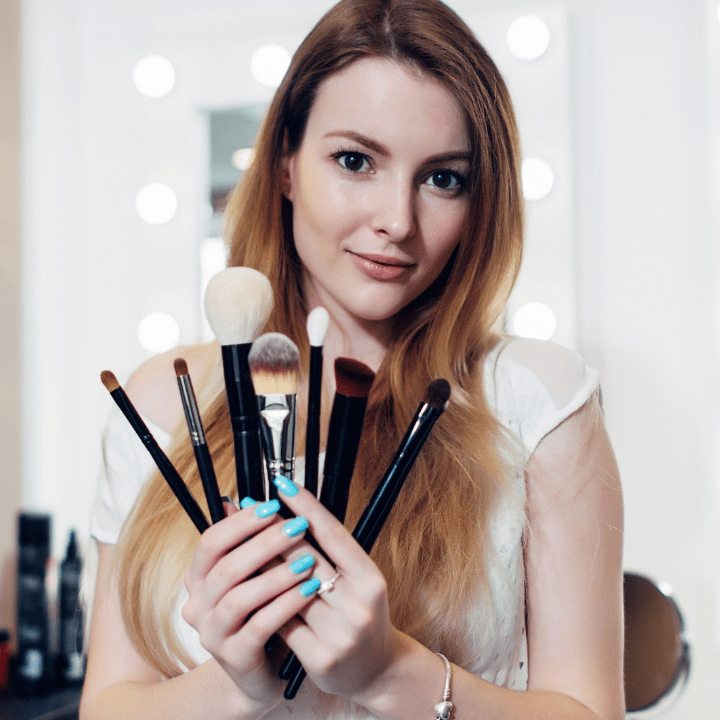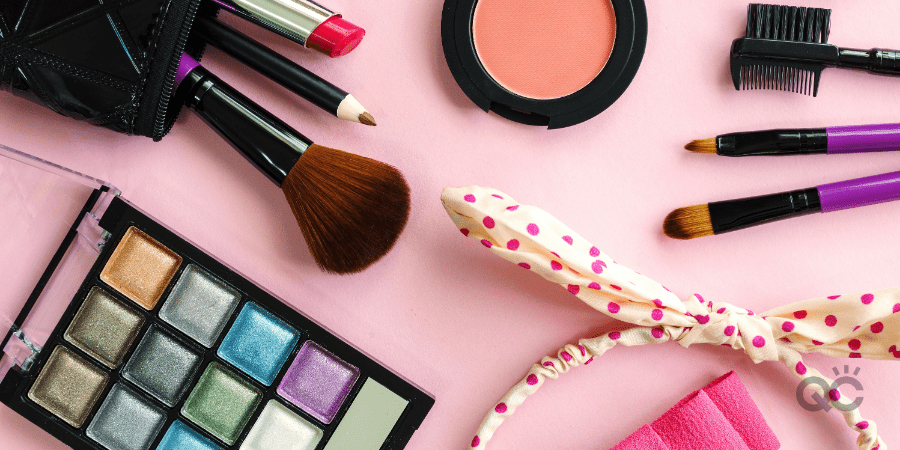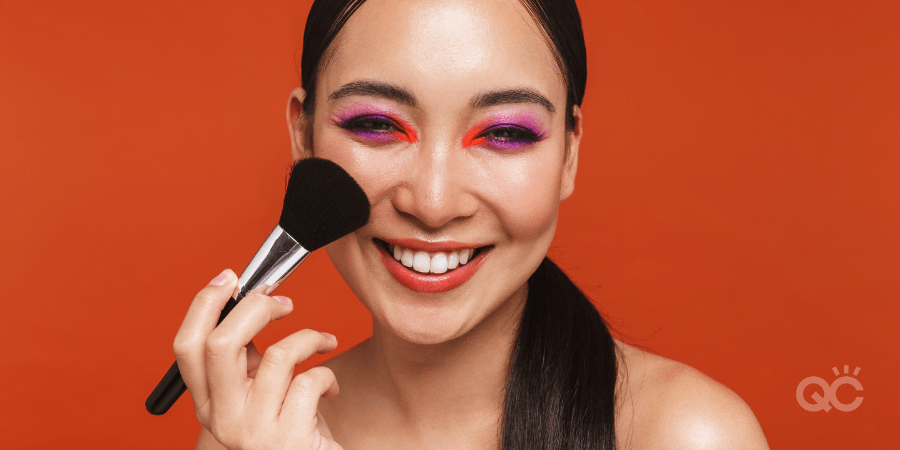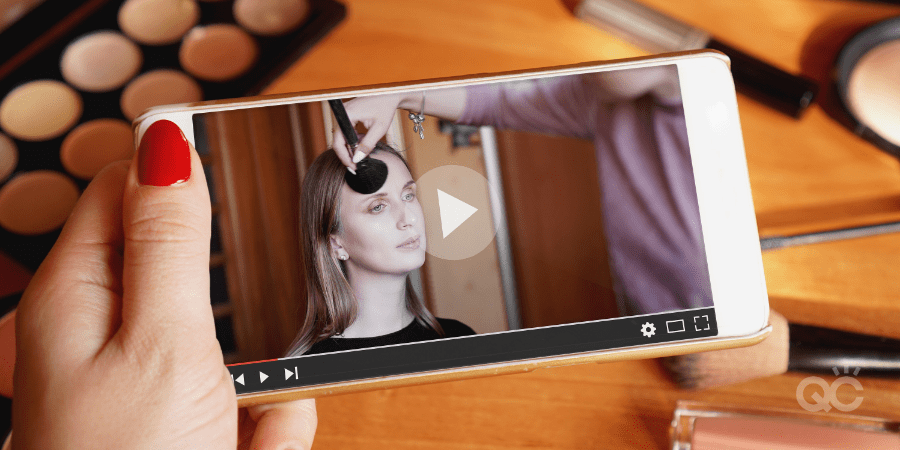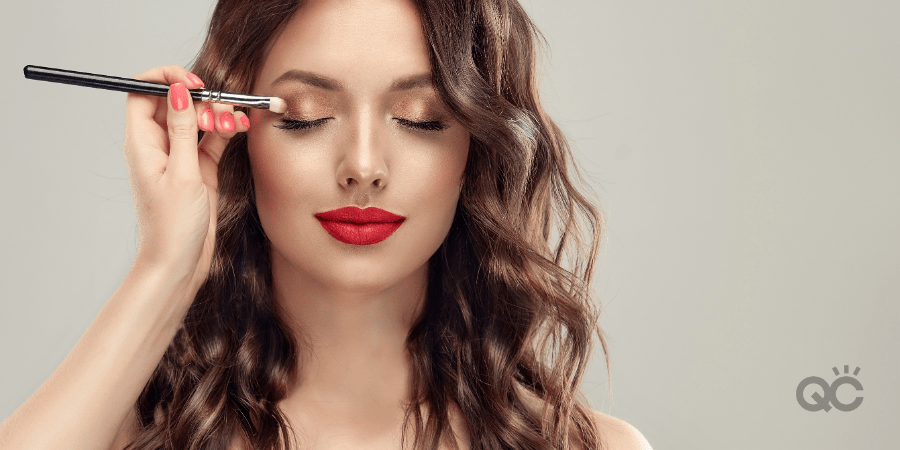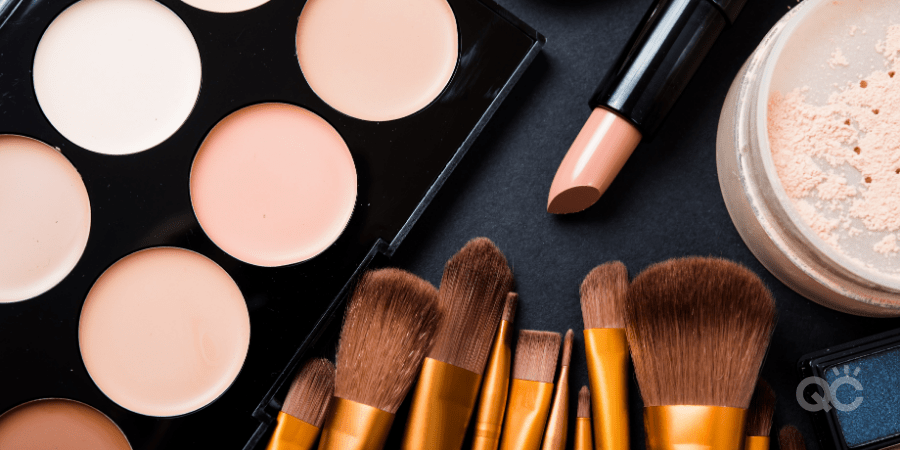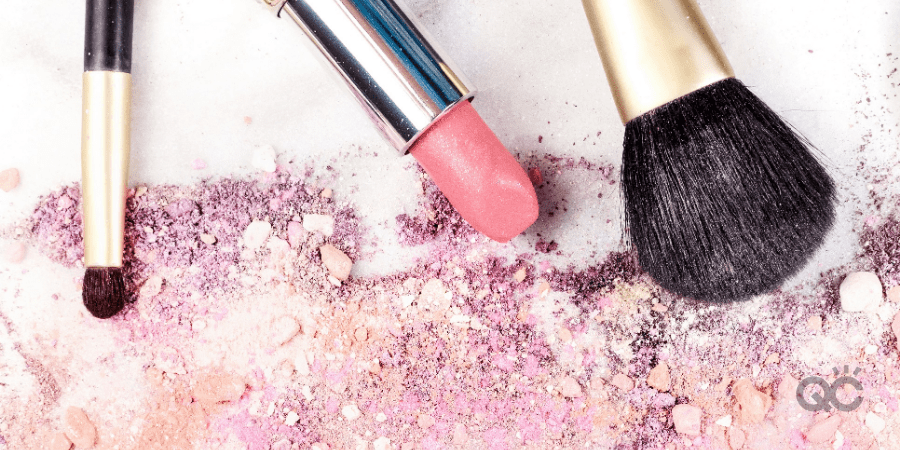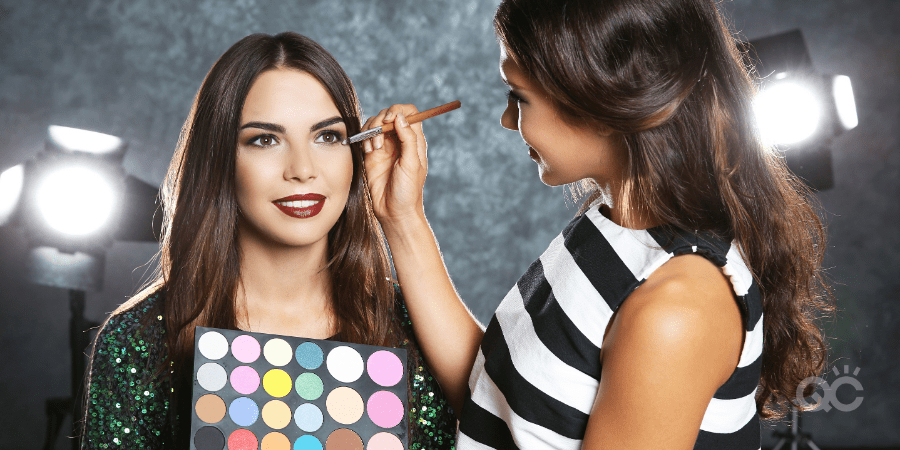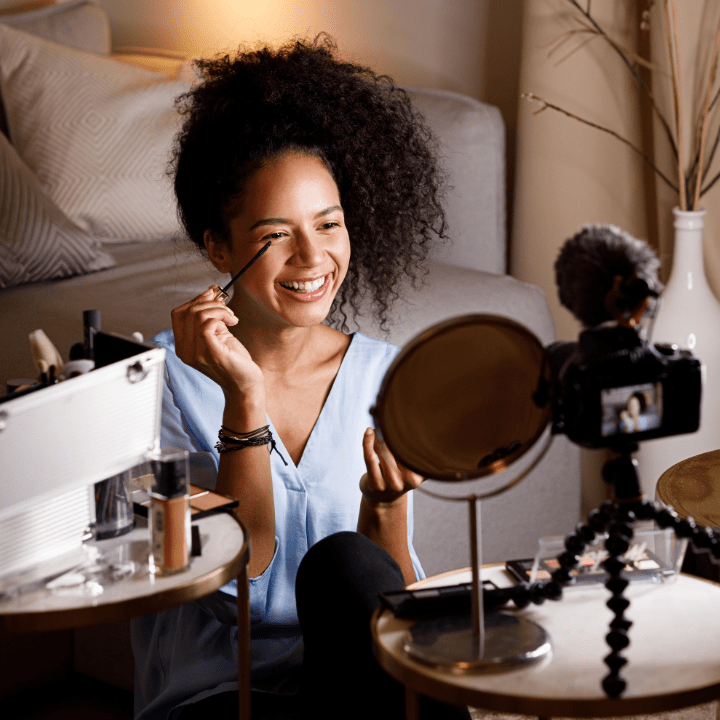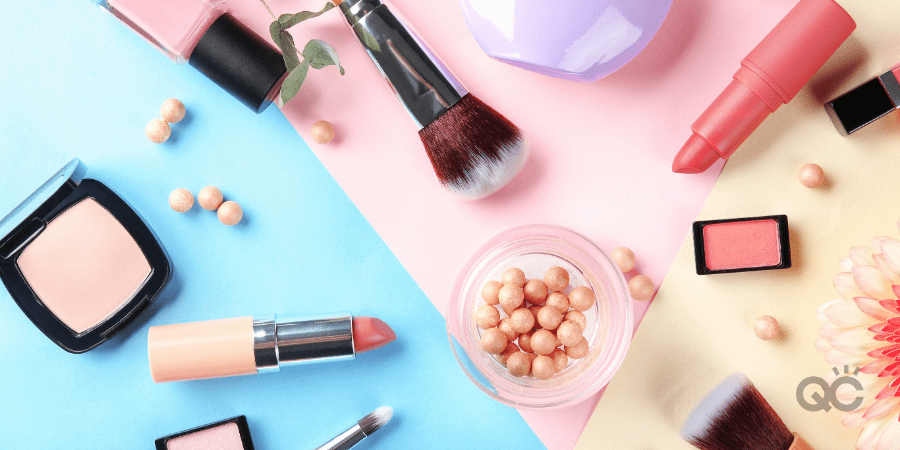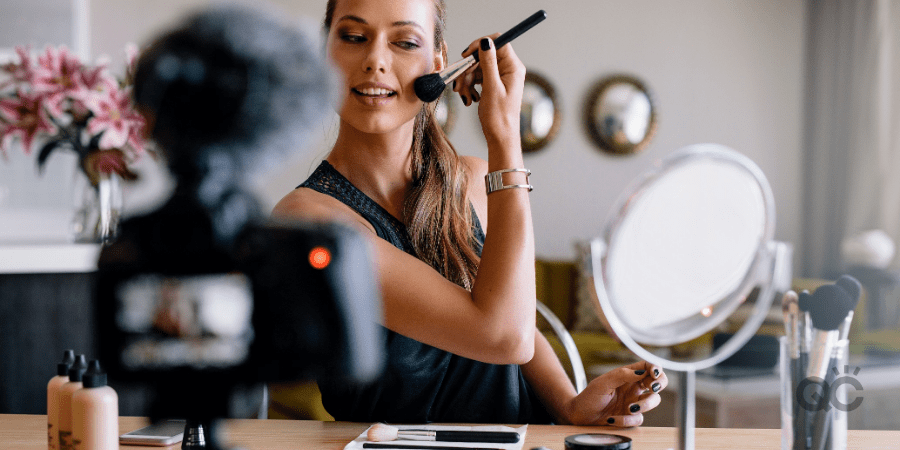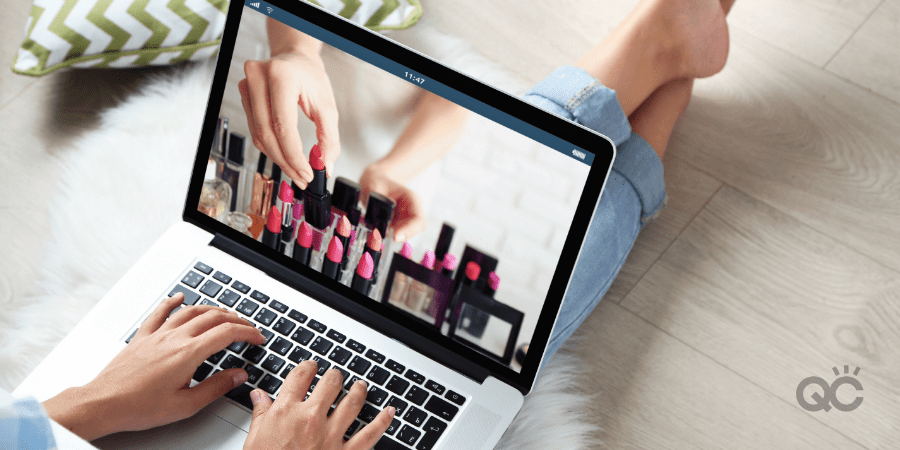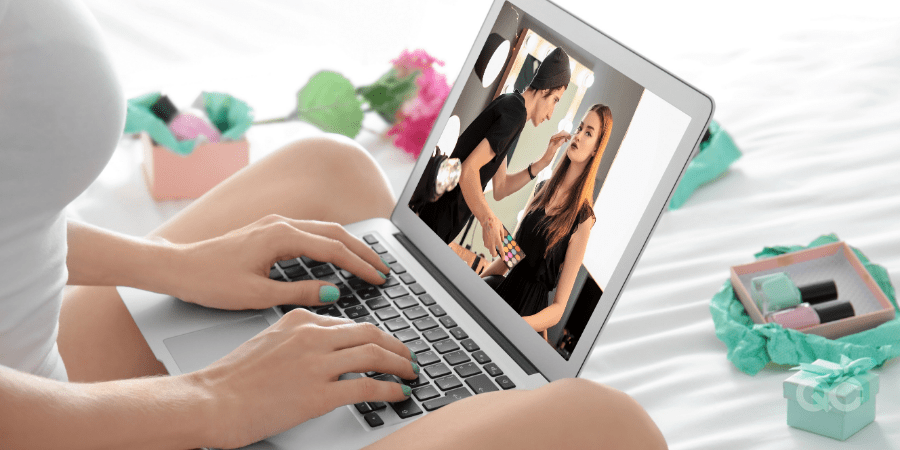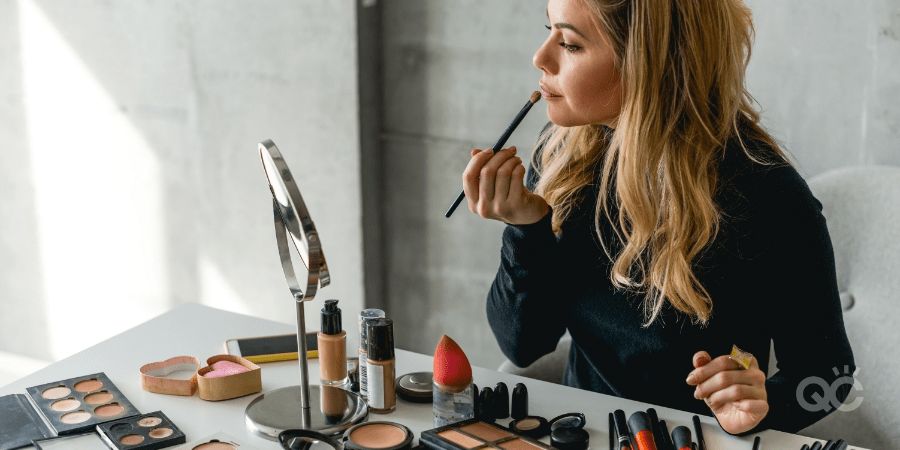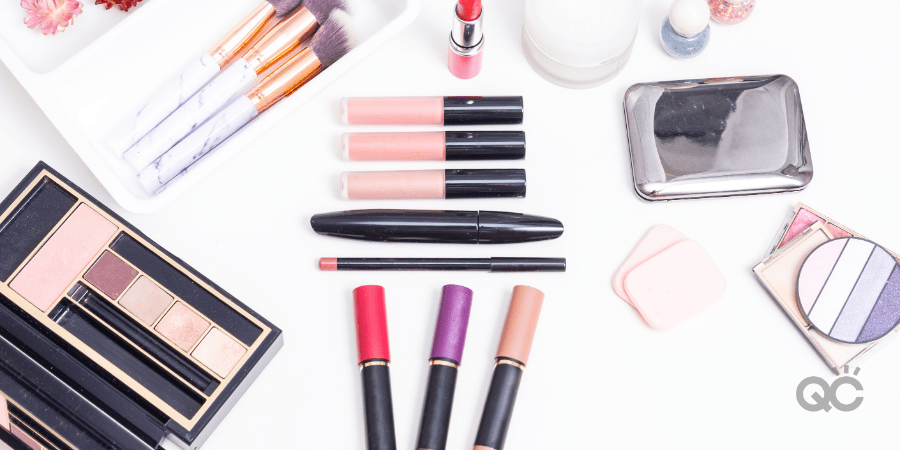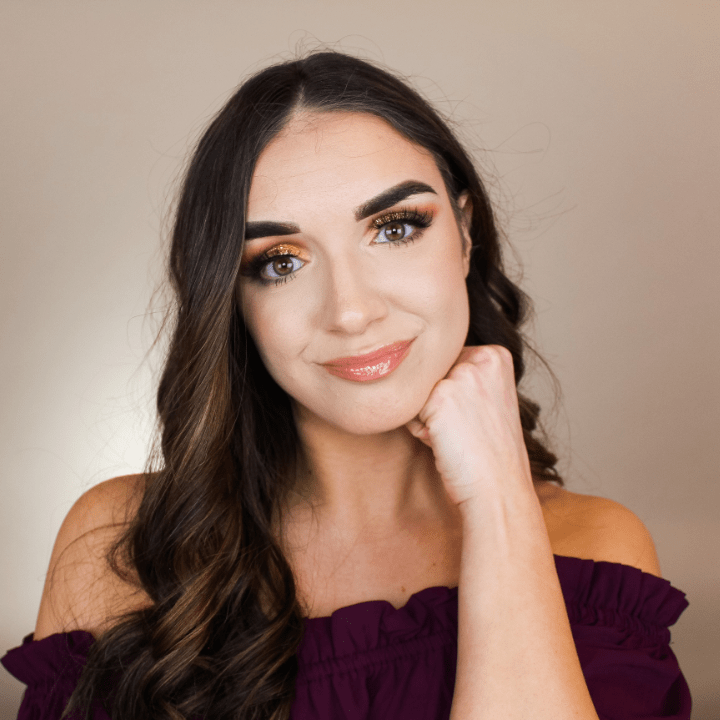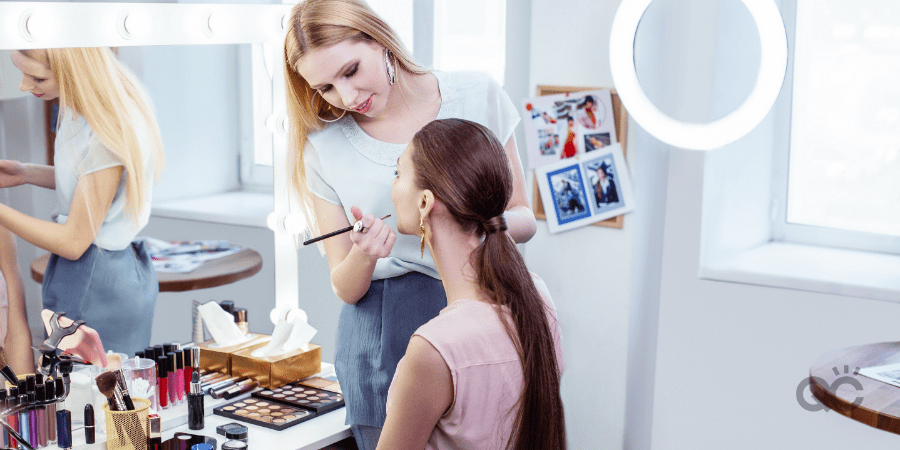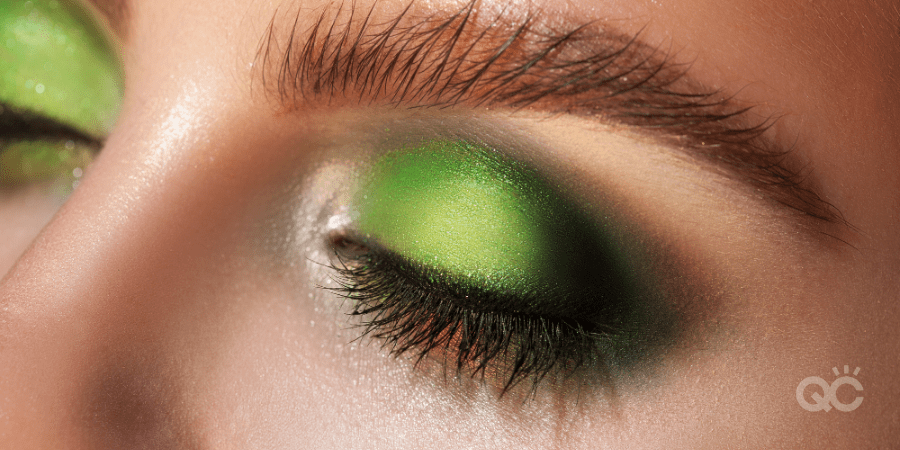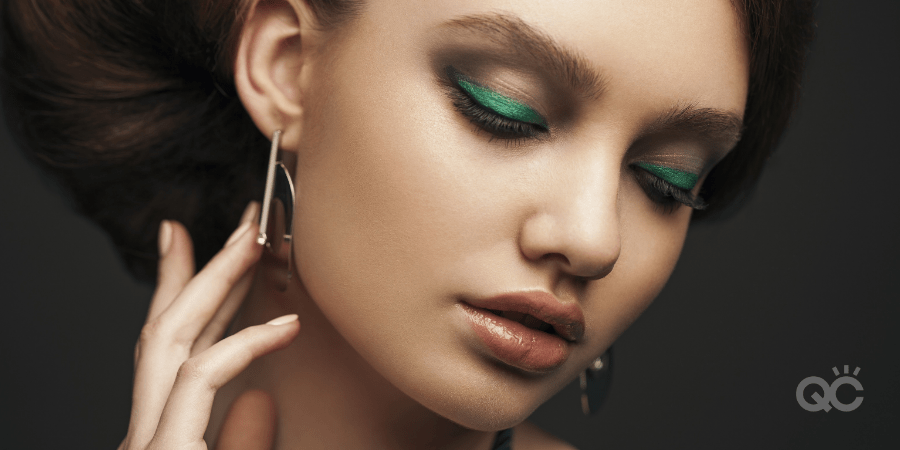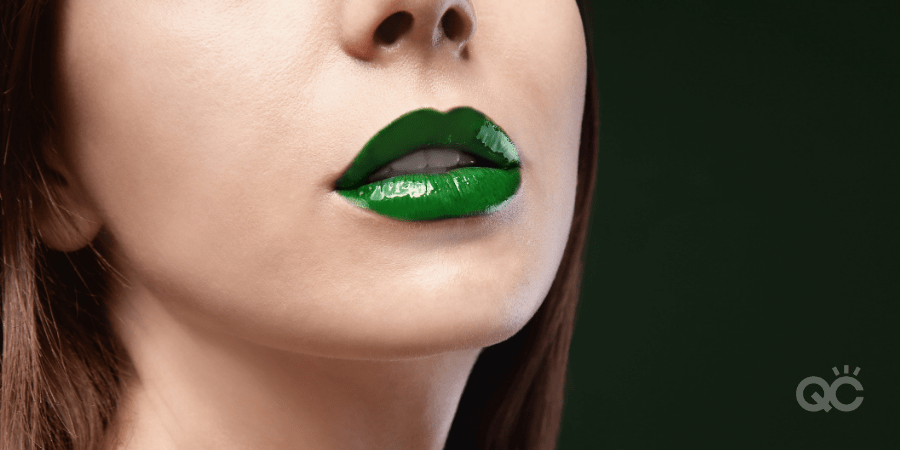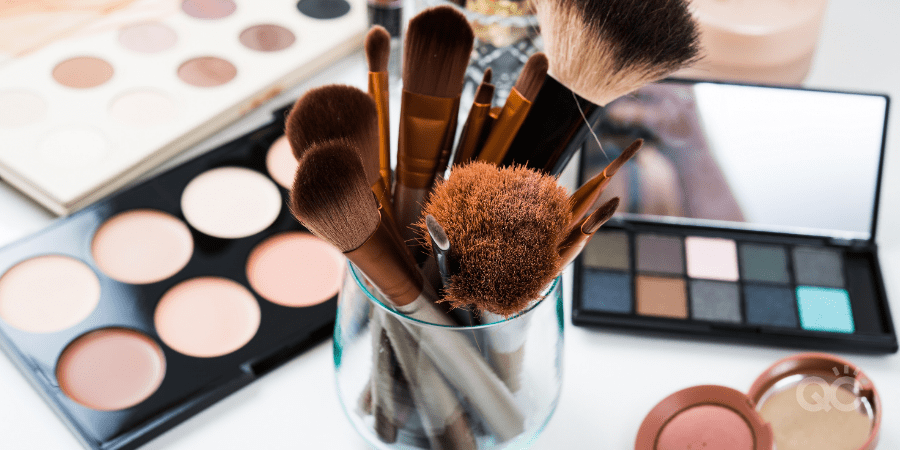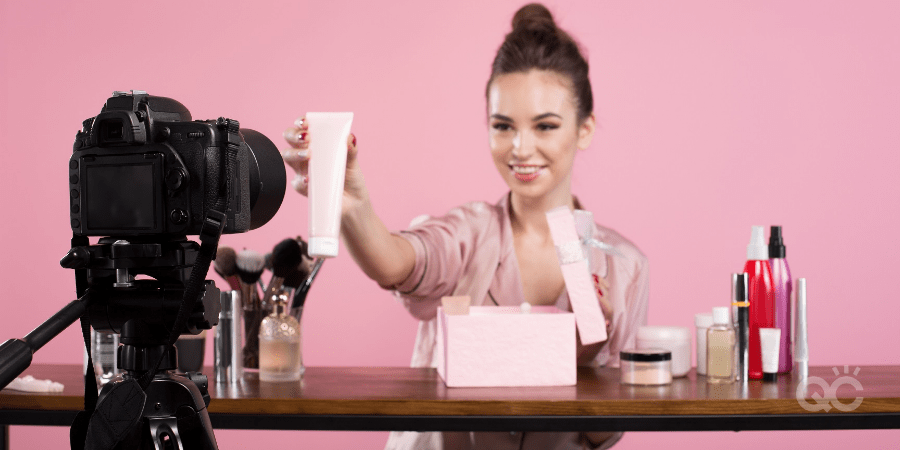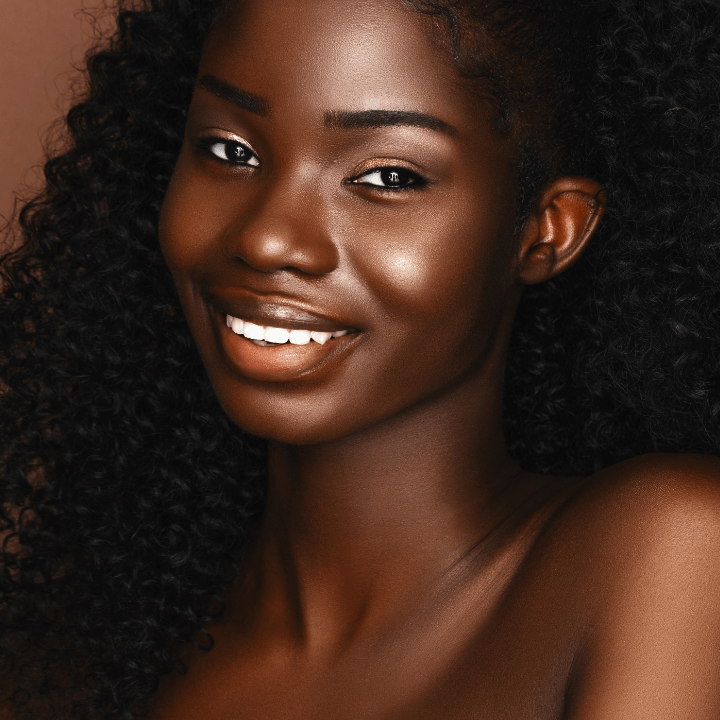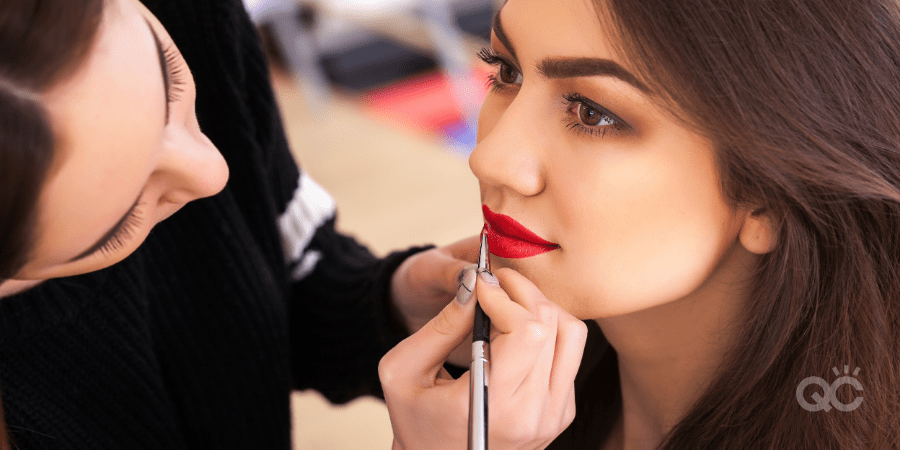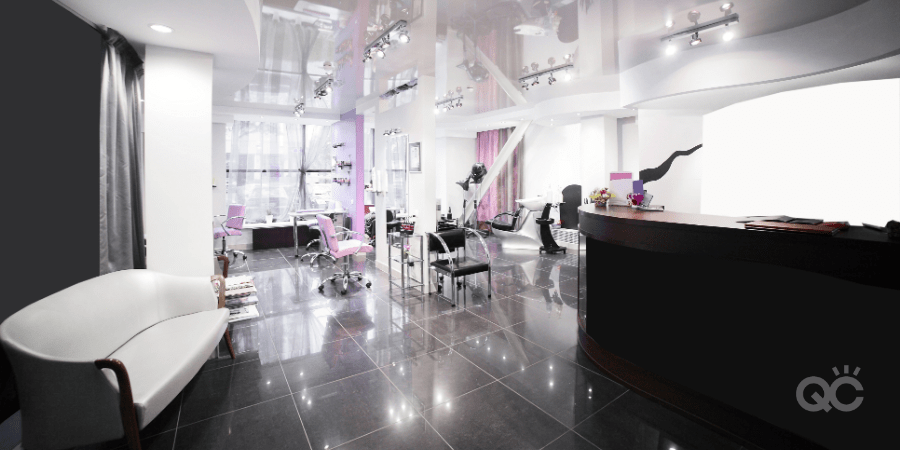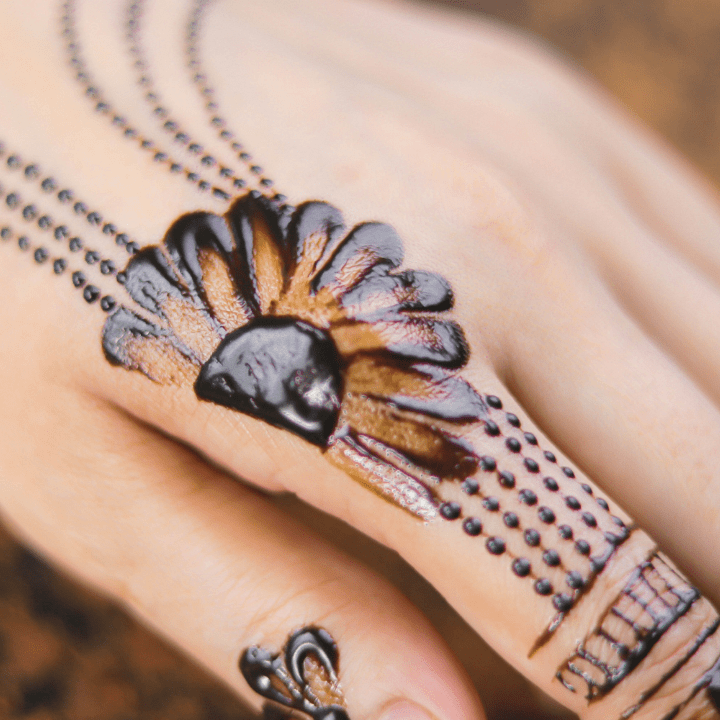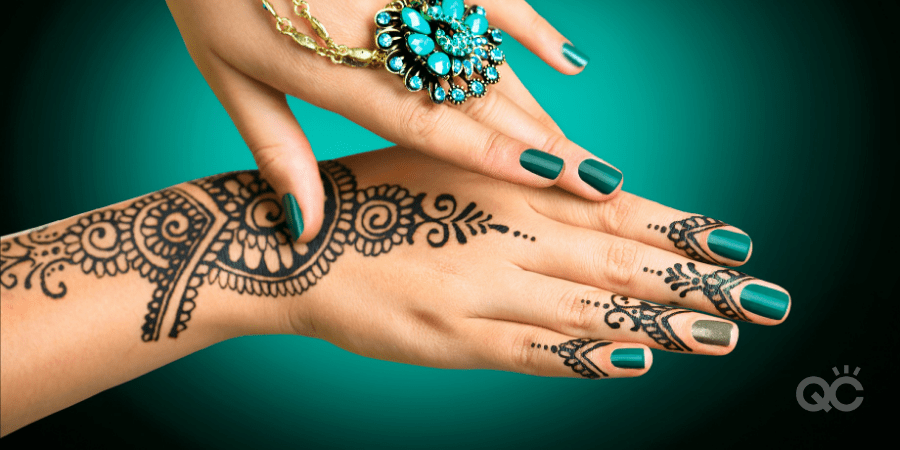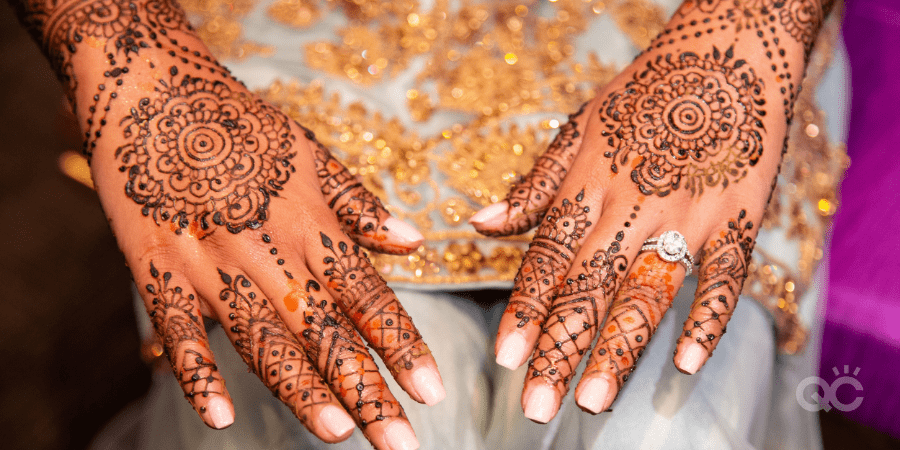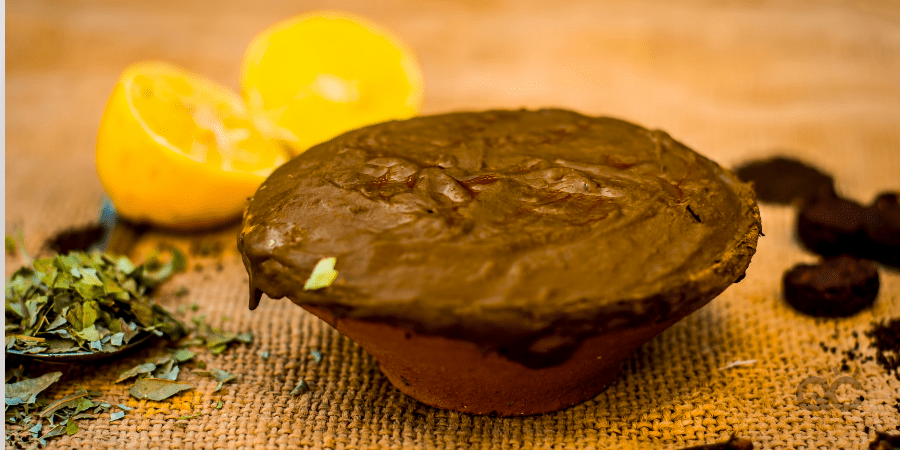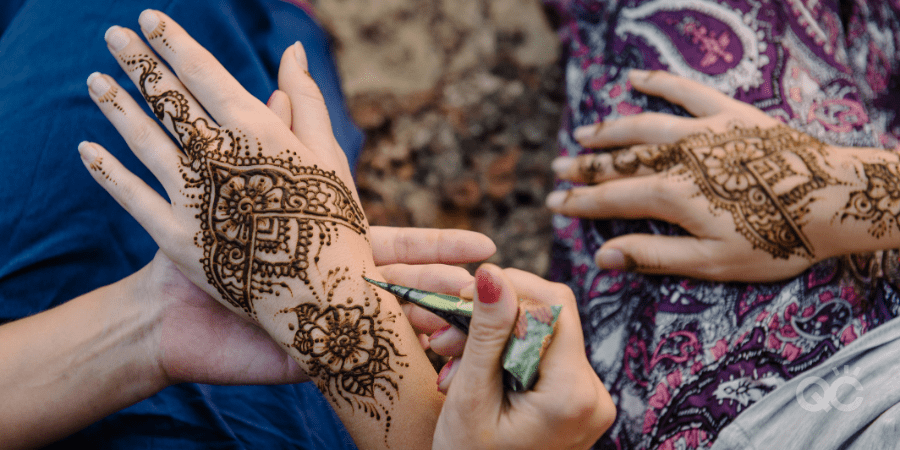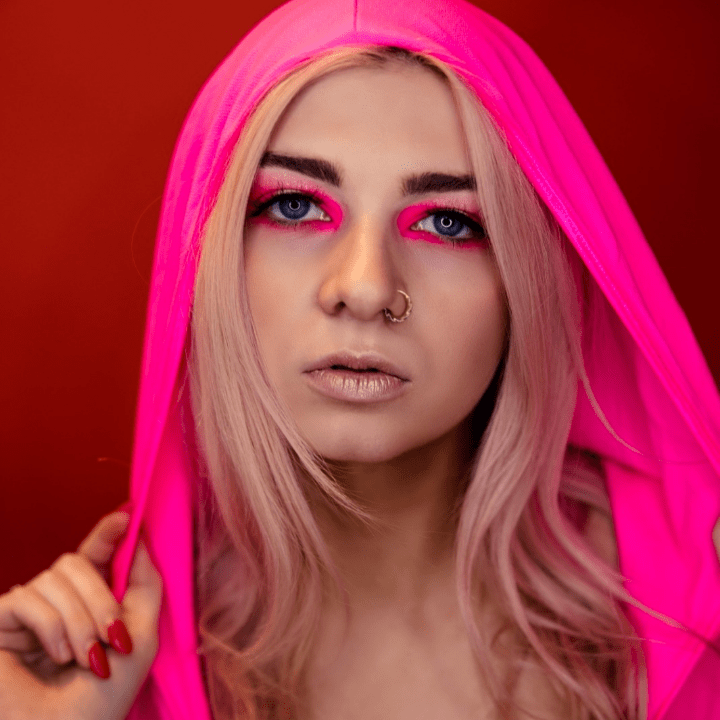
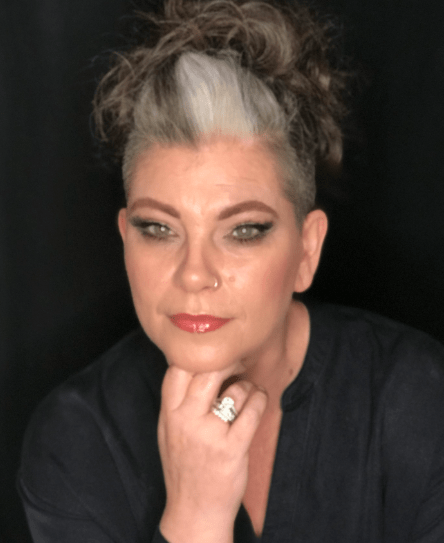
Tell us a little bit about yourself!
Hi everyone, my name is Caroline! I’m 46 years old, with 4 children and 6 grandchildren. Before makeup came into my life, I worked in a special needs school. I adored it, and only left because my own child became chronically ill.
I love spending time with my family, friends, and generally having a giggle. Truth be told, you’ll often find me hanging out in my makeup room during my spare time. I eat, sleep, and breathe makeup!
Why did you decide to become a professional makeup artist?
I found makeup during a very dark time in my life. Struggling to accept my child’s illness, and that fact that he could no longer be able to go to school, I became very isolated. One day, however, an advert popped up on my news feed about becoming a makeup artist.
I’ve always loved makeup, but I never considered it a potential career for myself until that moment. So, I decided I would take the class for myself. No one could have foreseen how this journey would ultimately save me and help me grow. It’s absolutely the reason why I’ve gotten to where I am now!
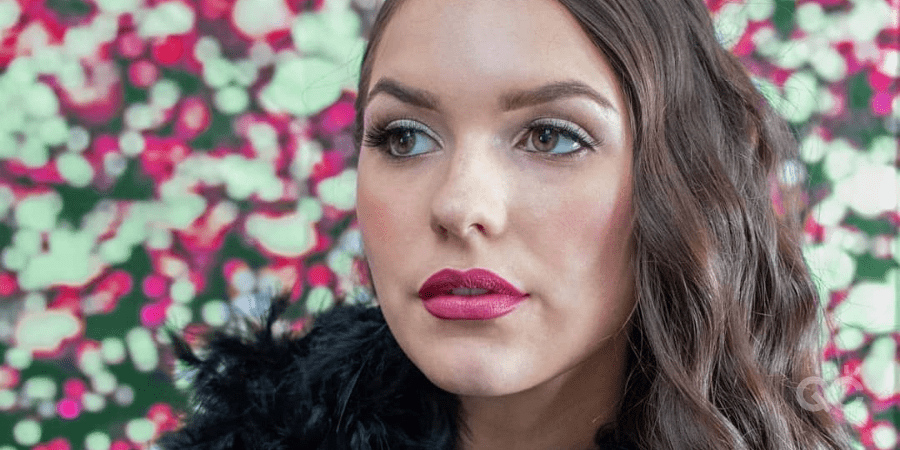
Despite still being a makeup artist student, you already have your own successful MUA business. Can you tell us a little about its history, and the kind of professional services you offer clients?
I started building my bridal business last year. I figured, why not just bite the bullet?
I began by putting my name out there, which led to a position within the most beautiful salon. My coworkers there knew of my aspirations to open up my own business. They really supported me and encouraged me to go for it!
I’ve taken part in a lot of bridal photoshoots, in order to network with other suppliers and gain some professional images for my website. In addition to doing makeup, my business also offers skincare advice and makeup lessons (group sessions and/or 1-on-1s). I’ve slowly started adding hair-related services, too.
I just love to share my knowledge and help others!
You’ve been super busy lately working as a makeup artist for a feature film. WOW, that’s truly amazing (congrats are in order!). How did you land this job? What’s the experience been like?
This opportunity came to me after I’d connected with another makeup artist. We clicked straight away, and she has become a very dear friend. She was working on a film at the time, and after chatting for a while, she offered me a place on her team.
It’s been the most incredible, wonderful experience! The cast and crew are absolutely amazing. We’ve all become a little family unit. What started out as 1 day of work experience has turned into an ongoing job for me! It’s now been 10 months since I joined this film crew. I feel very blessed.
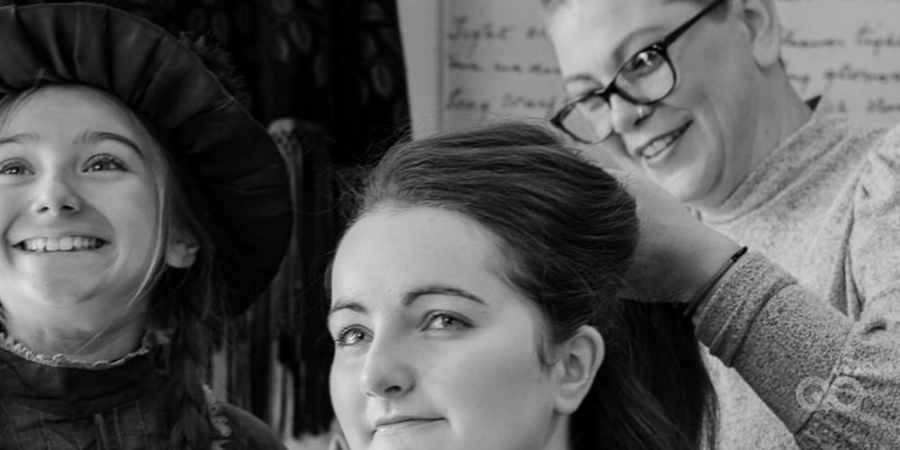
You look to have done your fair share of regular makeup, SFX makeup, bridal makeup, and even editorial makeup (for ELEGANT magazine). Of all these different categories, do you have a favorite one?
That’s hard! I adore every aspect of makeup. I think my favorite style, though, is red carpet glam.
That being said, I adore editorial makeup and photoshoots. Nothing can ever take away that feeling of seeing your work published!
You’re enrolled in Nathan’s Master Makeup Artistry course, and are currently killing it with an A average! How are you finding the program so far? (E.g. The tutor interaction, videos, course texts, assignments, student support, etc.)
I don’t have enough words to say how wonderful QC Makeup Academy is. Nathan is extraordinary! He’s honest, but never cruel. You always know that everything he tells you is coming from the heart.
If you want to learn and improve as an artist, you need to be able to take constructive criticism. It’s not harsh, nor is it meant to upset you. It’s merely to help train your eye and keep pushing you.
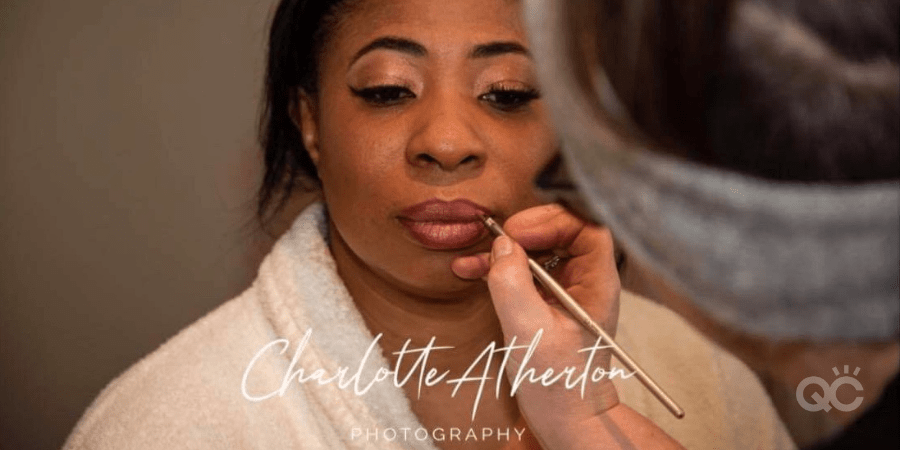
My whole experience has been nothing but a pleasure. The videos are clear to understand, and in addition to looking beautiful, the text books are full of all the information you need! I found the assignments to be very detailed.
There are quite a lot of them, so you must work hard to be able to learn. But you WILL learn, and gain all the tools you need to do this job professionally!
It’s also worth noting that my fellow students are simply awesome. The student-run support group on Facebook has been life-changing. There’s a very real sense of family community within QC, whether it’s between the students, or extended from the staff. I love that!
What made you want to enroll in QC’s Portfolio Development Workshop? What specifically do you hope to learn and take away from it?
I thought it would come in handy to understand how to organize photoshoots and develop my business portfolio. After all, without a decent portfolio, how can I properly showcase my work?
Why did you enroll in online makeup courses instead of offline?
It would be impossible for me to attend in-person classes with all my personal commitments! So physical makeup school wasn’t an option. After that, I turned my focus to online schools.
I had initially done a few online courses elsewhere, but they really didn’t teach me much. After that, I researched some online makeup schools, and QC Makeup Academy jumped out at me. The deal was sealed from that point on!
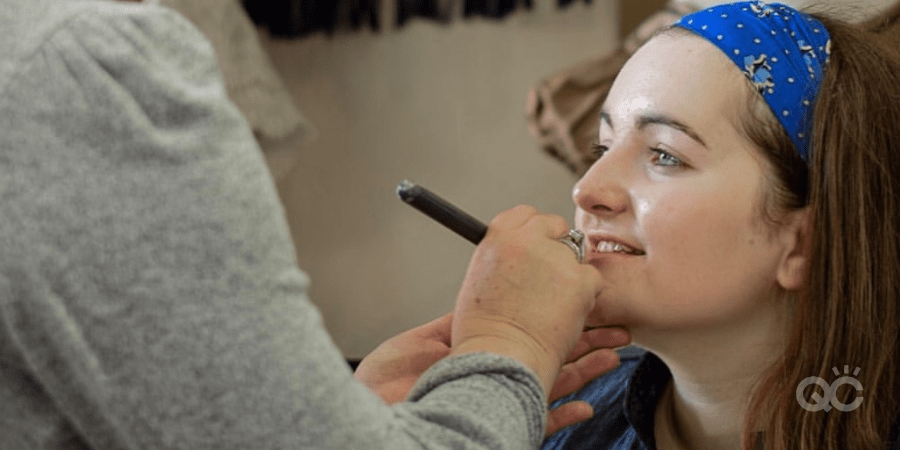
Is there a particular technique you’re still working to improve?
I’m always working on my skills! But for me, blush and lips are things I want to take to the next level.
Name your Holy Grail product that ALL makeup artists should have (and why)!
I don’t have just 1 product. But I AM in love with the brand, Charlotte Tilbury. In my experience, her product line works beautifully for bridal makeup. They’re also just as awesome for editorial looks, too, since they show up so well on camera. I couldn’t be without her products!
